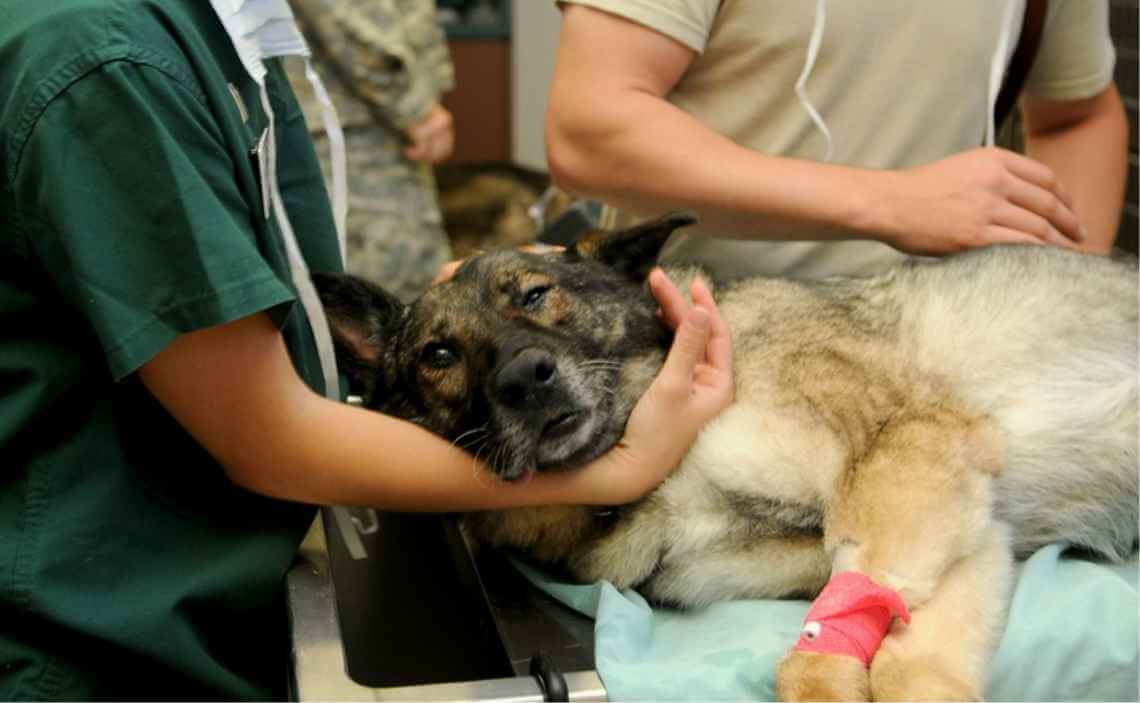
The holidays are here and that means delicious pies, cakes, candy and lots of other good stuff to eat. While you are enjoying your holiday feast, be aware there is a growing concern for dogs who accidentally ingest a deadly ingredient found in many foods, especially low-sugar or sugar-free goods.
Most dog owners are well aware of dangerous foods for dogs – like chocolate, garlic, onions and grapes. Click here for the Ultimate Guide for Avoiding Potential Holiday Hazards for Your Dog. While these foods are harmless for most people, they can have serious side effects and could cause death to your canine companion.
Another common substance that is harmless to most humans but can be deadly for dogs is xylitol. Xylitol is a sugar substitute that is used in many sugar-free foods.

Xylitol is Toxic to Dogs
Ingesting xylitol causes a rapid release of insulin in dogs, which will cause a profound decrease in the level of blood sugar, also known as hypoglycemia. Xylitol is absorbed into the bloodstream very quickly, causing a dog to become acutely weak. Most dogs that have ingested xylitol will stagger and vomit. If they have eaten enough, they will become comatose in about 15-20 minutes and their liver may fail, causing death.
Canine Xylitol Poisoning is a Growing Problem
According to the Poison Pet Helpline, xylitol poisoning is a growing problem. As human use of xylitol-containing products becomes more common, cases of xylitol toxicity in dogs will likely increase. It is especially important that dog owners are aware of the dangers of xylitol poisoning because the labels of most xylitol-containing products do not warn users of the dangers to dogs of ingesting the substance.
How Much Xylitol is Toxic to a Dog?
The dose of xylitol that has been found to cause hypoglycemia is 50 milligrams (mg) per pound of body weight. For example, it would take 2 pieces of most types of sugar-free gum (a common item that contains xylitol) for a 45 lb. dog to get sick. It would take 10 pieces of the same gum for a 45 lb. dog to experience liver failure. There is a range of xylitol in different foods so it’s a good idea to bring your food label (if you have it) to the vet with you if you think your dog has ingested xylitol.

What Products Contain Xylitol?
Here are 9 products that commonly contain xylitol:
- Sugar-free gum, candy and mints
- Jams, syrups, honey and raw xylitol
- Chocolate
- Sugar-free baked goods
- Sugar-free groceries like ketchup, peanut butter, pudding and many more
- Protein bars and powders
- Over the counter medications, vitamins and supplements, especially melt-away vitamins, melatonin, liquid prescription products and gummy vitamins
- Mouthwash and toothpaste
- Cosmetics, lotions, gels and deodorants contain xylitol due to it’s moisture-retaining properties
How Can You Protect Your Dog from Xylitol Poisoning?
The best way to protect your dog from xylitol poisoning is to read the labels of foods and other items you are consuming and take extra precautions to make sure your dog doesn’t get ahold of them. Look for the words xylitol or sugar alcohol.
What Should You Do If You Think Your Dog Has Ingested Xylitol?
If you think your dog has ingested xylitol try to grab the label of the item you think your dog ingested and take it along with your dog to your vet as quickly as possible. Xylitol poisoning happens very quickly, so don’t waste any time getting your dog help.
How is Xylitol Poisoning Treated?
Treatment needs to happen very quickly to effectively reverse the toxic effects of xylitol and prevent severe problems. If your dog doesn’t have any symptoms yet, your vet will probably induce vomiting. In all cases, your vet will perform blood work and your dog will need to be hospitalized for blood sugar monitoring, dextrose administration, intravenous fluids, liver protectants and any other supportive care that may be needed.
Where Can I Get More Information?
Pet Poison Helpline, an animal poison information service, is available 24/7 by calling 800-213-6680.
Looking for a safe, comfortable place for your dog to stay while you’re out of town? Thinking about bringing your dog to day care for fun times? We hope you’ll contact us at 719-448-9600 to find out more about our premier dog care services.
Source:
“Xylitol Toxicity in Dogs.” VetFolio, www.vetfolio.com/emergency-medicine/xylitol-toxicity-in-dogs.














Leave a Reply